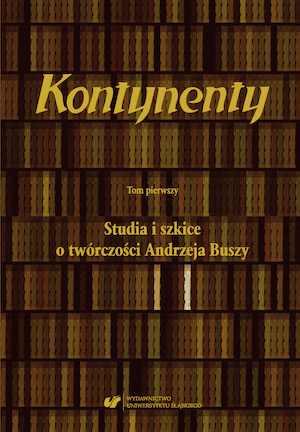O poemacie Kohelet Andrzeja Buszy
On Andrzej Busza’s poem Kohelet
Author(s): Wiesław Setlak
Subject(s): Polish Literature
Published by: Wydawnictwo Uniwersytetu Śląskiego
Keywords: Andrzej Busza; Kohelet; codes of transcendence; culture; metaphisics of presence;
Summary/Abstract: Although ostensibly Busza’s poem Kohelet is a polemic with Czesław Miłosz’s Traktat Poetycki (A Treatise on Poetry), it is above all an existential reflection on the situation of the artist in culture, on tradition, and even more generally on the modern human condition. At the philosophical level, the anthropological perspective dominates. According to Setlak, Busza views culture as an omnitemporal domain and tries to enter into dialogue with its various historical manifestations. The poet’s main frame of reference is the pessimism as well as stoicism of the biblical Book of Kohelet and of its author. If for the poet the human being seems a necessity, God is something he can only assume by trying to decode the “ciphers” of transcendence (in Karl Jaspers words). We can view Kohelet in terms of a “metaphysics of presence”, though it is difficult to find in it any metaphysical statements declared expressis verbis. Andrzej Busza craves to revitalize poetry in our increasingly dehumanized world and to restore to humanity its innate multi‑dimensionality. The polyphonic poem is a projection of the state of mind of an artist unable to absolutize what he knows is not absolute. That is the underlying source of the melancholy emerging from the verses of this poem
Book: Kontynenty. T. 1: Studia i szkice o twórczości Andrzeja Buszy
- Page Range: 219-237
- Page Count: 21
- Publication Year: 2019
- Language: Polish
- Content File-PDF

